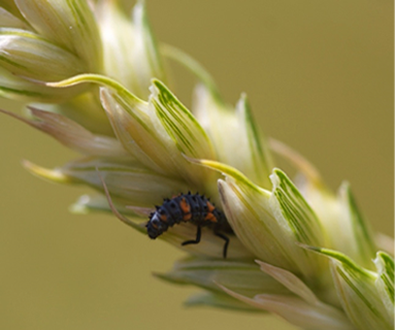My research focuses on predator-prey interactions in agroecosystems, with a particular interest in prey selection and environmental effects on natural enemy populations. Generalist predators, those that consume many different pests or other arthropods, are important components of natural biological controls present in agricultural landscapes. The role of different naturally occurring biological control species and interactions between different natural enemy groups is an exciting area with widespread importance to management of production systems. In this area of research, the lab will work on a broad range of topics that test for the interactions between species and the effects of proposed biotechnical and integrative pest management strategies on beneficial arthropod populations and biological control.
This lab uses a multidisciplinary approach, incorporating molecular, and chemical ecology tools, behavioral laboratory bioassays and microscopy, as well as on-farm and manipulated field experiments to study predatory arthropod communities and biological control at multiple levels. I am excited to build new collaborations here in the southeast to form multi-disciplinary teams that work to expand our scientific understanding of biological controls, and work closely with growers, industry and the business community to promote improved pest management and sustainability through biological control.
The lab will focus research initiatives at multiple scales linking farmscape diversity, border habitat, and within field management to improving sustainability and biological control.







